[*Note: This is a duplicate of a post originally published yesterday. The original post caused display issues so I made a duplicate and recreated 15 comments left on the old post. Sorry for any inconvenience. – Jonathan.]
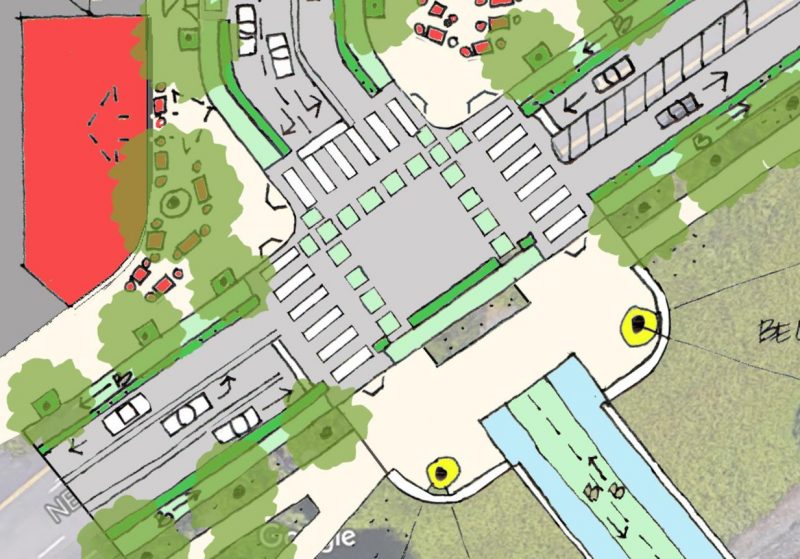
(Graphics: PBOT)
By 2020 Portland will have two more carfree bridges — both of which will span across freeways that currently present onerous barriers to our central city transportation network.
At the monthly Portland Bicycle Advisory Committee meeeting last night, Bureau of Transportation project managers shared the latest updates on the Flanders Crossing and Sullivan’s Crossing bridges. Both bridges are at the very early stages of design (about 10 percent), but they have similar schedules. PBOT’s Dan Layden even joked last night that during construction they might even close both the I-84 and 405 freeways at the same time.
The big decisions at this stage in the game are what the bridges will look like. PBOT staff wants to narrow down the cross-section and striping plans and they showed their latest thinking on both fronts to the committee last night.
Flanders Crossing
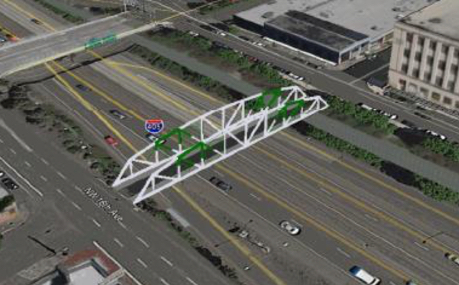
Flanders is a bridge with vast potential that will be complemented by the NW Flanders neighborhood greenway creating a low-stress street for biking between Waterfront Park and NW 24th. It will also come with new signals at NW 14th and 16th (we hear ODOT is giving PBOT the business about how a new signal at 16th will disrupt freeway-related traffic). The budget is $6.4 million, split between an ODOT Connect Oregon grant and PBOT system development charges.
At 24-feet, the bridge will be the widest carfree facility in Portland. The Waterfront Park path is just 16 feet (including those annoying ship “cleats”) and the Tillikum crossing path is 14-feet wide. To make biking, walking, and rolling as easy and comfortable as possible, PBOT is eyeing one of two options that, “Range from less flexible space with more separation to more flexible space with less separation.”
The first option is to have two, six-foot wide bike lanes in the middle and two six-foot wide paths on either side. The bike lanes would be on a different grade and separated by a rounded curb:
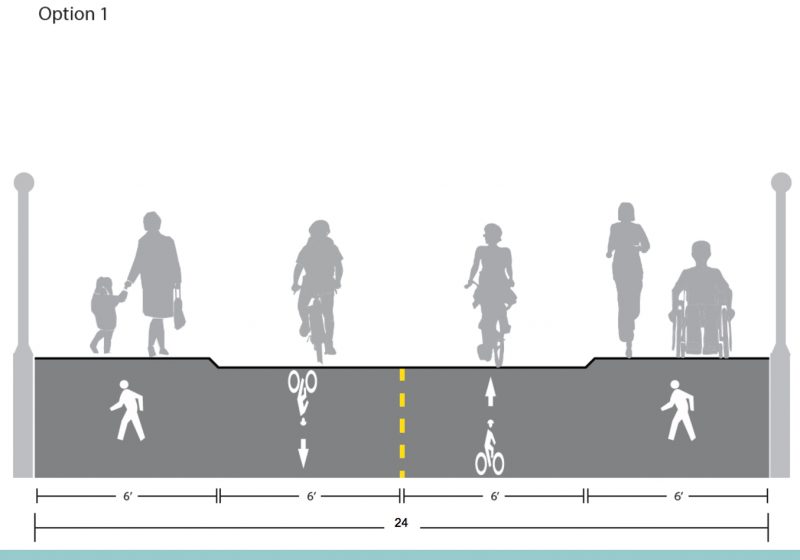
The second option is to put all four lanes on the same level and separate the bikeway with the color green (and other striping). This is the option currently preferred by PBOT:
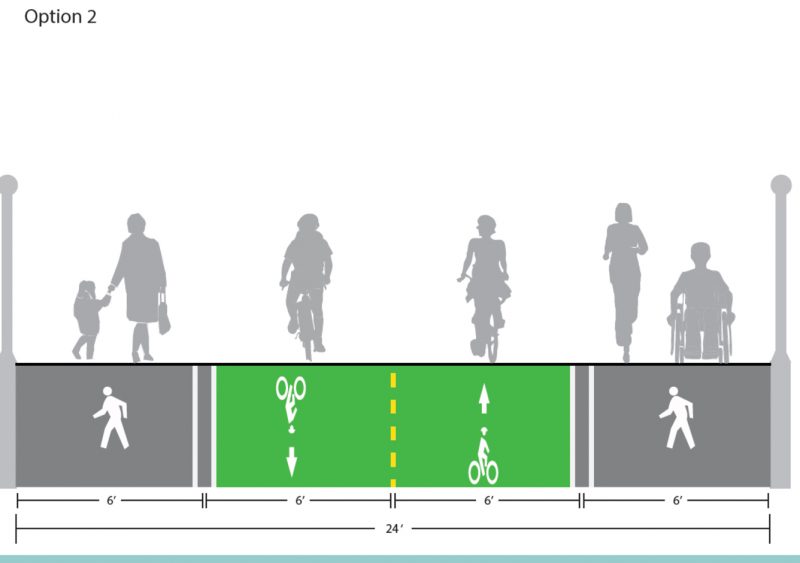
A third option is similar to option two but without the coloring and with even less striping. The minimal striping would aim to encourage a shared space:

Advertisement
Sullivan’s Crossing
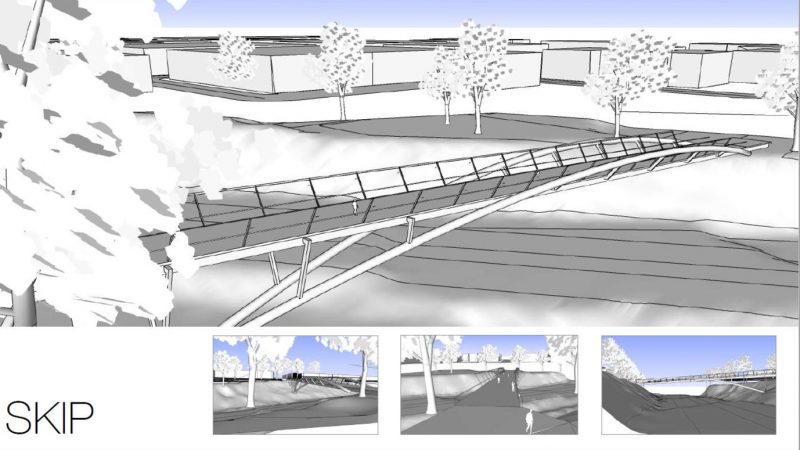
Introducing, Skip! That’s the name of the bridge design PBOT wants to build. This design has won out (the “Leap” design came a close second) because, as Layden put it, “It’s more elegant, easier to build, and it’s cheaper and within our budget.” Speaking of budget, this bridge is much longer than Flanders (460-feet compared to 199-feet) and has a price tag of $13.5 million (paid for mostly by PBOT system development charges).
Since PBOT expects people to take in the view of the downtown skyline from this bridge (unlike Flanders, which they assume everyone will be eager to get across), their current preferred cross-section design puts a 12-foot walkway on the west side of the bridge and a 12-foot, bi-directional bikeway on the other side:
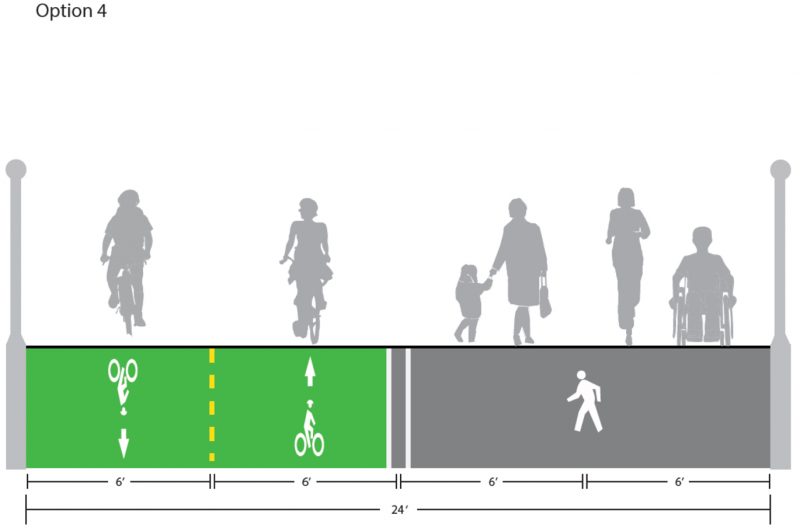
The design of the intersections on both sides of the new bridge also came up last night. Layden said they’ve opted against a roundabout for the north landing in large part because “the geometry for trucks just doesn’t work.” Instead, it will be a signalized crossing. Here’s the latest sketch of what it will look like (note that the project is likely to come with major changes to Lloyd Avenue including a lane reconfiguration and a new two-way bike path on the south side):

And here’s a sketch of what PBOT is considering for the southern entrance:
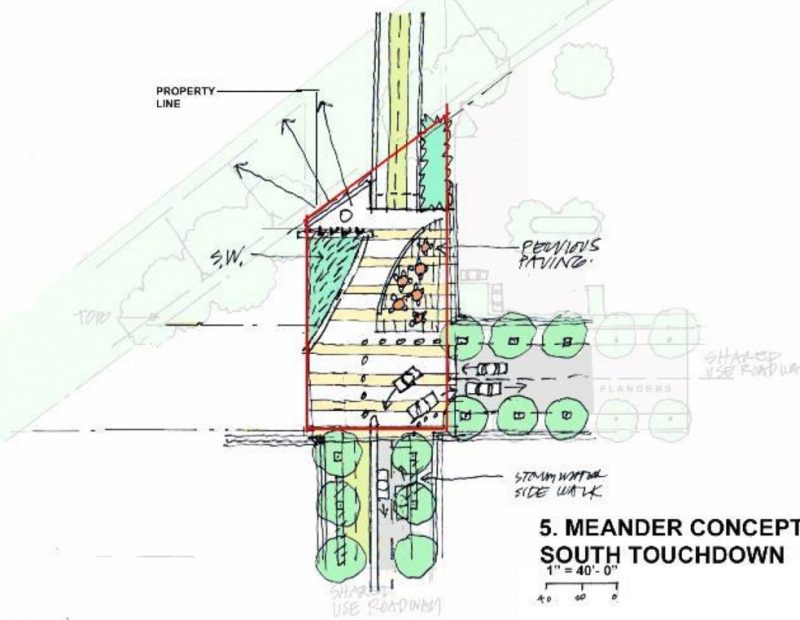
Unfortunately the meeting ran late and there wasn’t much time for committee discussion. The one person who did sneak in feedback was new BAC member (representing Bike Loud PDX) Catie Gould. She said six feet was much too snug for a bikeway — especially if we want to encourage people to ride side-by-side and reach our cycling trip goal of 25 percent.
If you’ve got feedback on these designs, visit the official project pages — here for Flanders, here for Sullivan’s — and contact Dan Layden directly. You can also sign up for emails about each project and of course stayed to your local BP stations for key updates and opportunities to weigh in.
— Jonathan Maus: (503) 706-8804, @jonathan_maus on Twitter and jonathan@bikeportland.org
Never miss a story. Sign-up for the daily BP Headlines email.
BikePortland needs your support.

